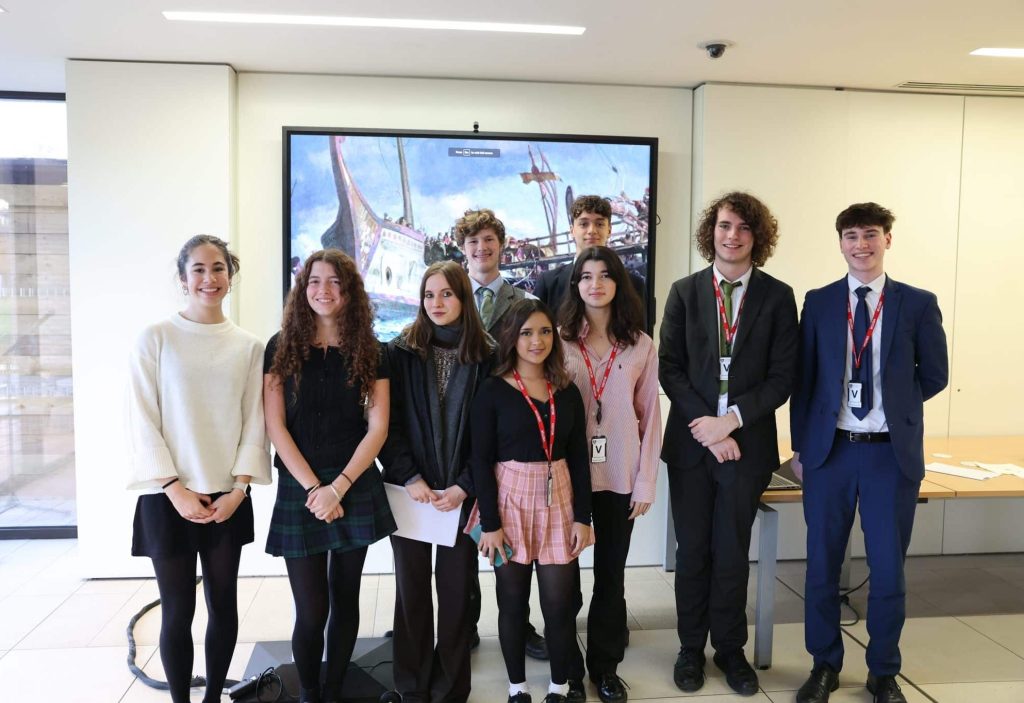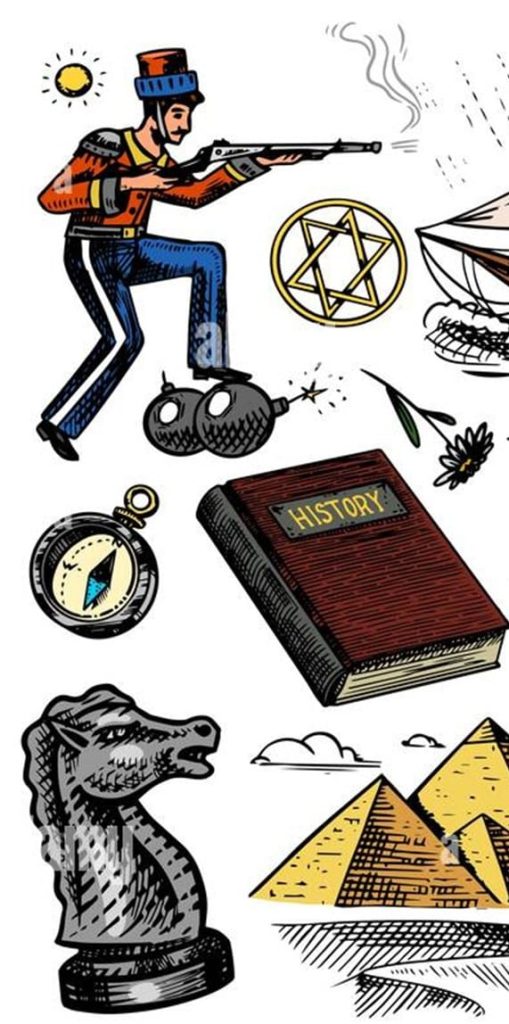History encompasses the entirety of human experience. Every person and every society has been shaped by history and so there will always be something to interest everyone. ‘What is History?’ is a much-debated question, but at the heart of the subject are stories, so history should be studied by anyone who enjoys stories and how they are told. Pupils should take history firstly because human stories are interesting, important and make us think about the present and future. Secondly, because the soft skills that history develops will equip them for the 21st Century and keep their options open beyond Forest.
If that alone is not enough to convince you, the Forest History curriculum is incredibly broad, dealing with topics such as monarchy, empire, migration, war, revolution and genocide. We offer a range of British, European and global topics, studied as deep enquiry questions. Our historians make excellent progress and exam results have been strong. Our super-curricular provision is widely reputed throughout the school.
Our rich curriculum includes:
- Understanding of key concepts like causation, change and continuity, significance, perspective and interpretations.
- The development of critical thinking skills, the ability to evaluate the value of sources and understand the purpose and role of media in the past and present.
- In Years 7-9, our syllabus has been adapted to develop oracy and collaborative skills.
- The ability to deploy evidence to support arguments and offer balanced evaluation of viewpoints.
- An empathy and understanding of different societies in the past and present, and an awareness of historical perspective and how this has shaped human action.
- The ability to recognise and assess the strength and limitations different interpretations of the past.
- The ability to conduct independent research. At GCSE this focuses on the concept of historical significance, whilst at A Level this focuses on change and continuity over 100 years.
- Pupils will experience the ability of history to inspire joy, shock and awe.
GCSE and A-level Overview
The Cambridge IGCSE in History qualification enables students to:
- Learn about the Twentieth Century international relations, with a depth study on Nazi Germany. Students experience how politics and international relations really work, why wars happen (and why they don’t), and how extremism has been allowed to infiltrate.
- In Year 11, our coursework unit on resistance to Nazi Germany allows pupils enjoy independent research and extended writing. Our course also builds essay-writing, debating and source analysis skills, which make our students more savvy media users. Students enjoy a trip to Germany (either Berlin or Munich) in Year 11 where we visit a range of sites associated with the Third Reich.
The AQA A Level in History qualification enables students to:
- Choose from three unique pathways:
- “Iron and Blood”: The Age of the Crusades (1071-1204), The Wars of the Roses (1450-1499) and The Challenge of German Nationalism (1789-1890) (Coursework).
- “Monarchy, superstition and revolution”: The Tudors (1485- 1603), France in Revolution (1774-1815), the European Witchcraze (Coursework)
- “Societies in flux”: Tsarist and Communist Russia (1855- 1964, the English Revolution (1625-1660), and The British Empire in India (1845-1945) (Coursework)
- We run trips e.g., to Paris to visit sites associated with the French Revolution, or to relevant sites in London for the Tudors.
- Sixth Form historians lead our History Society which is open to pupils of all ages. We also run a History Magazine, The Forest Historian, edited by students. We enjoy a range of visiting speakers (in 2023-4 we welcomed Dr David Smith from Cambridge University to lecture on Charles I) and our Historical Symposium, run jointly with the London Academy of Excellence, is an annual highlight of the brilliant super-curricular research our Sixth formers have done. History at university is a popular option for Year 13 students and we run sessions supporting students taking History or a related subject at university.
Assessment at GCSE and A-level
GCSE:
- Component 1 – 20th Century International Relations content and the Germany Depth Study – 2 hours (60 marks – 40%)
- Component 2 – Looking at sources on a pre-selected topic (this rotates each year) – 1 hour, 45 minutes (40 marks – 30%)
- Component 3 – A 2000-word piece of coursework on the significance of opposition to Nazi Germany. Pupils complete this in Year 11, supervised by their teachers (40 marks – 30%)
A Level:
- Component 1 – x2 essay questions plus x1 question assessing the strength of historians’ interpretations on a topic – 2 hours, 30 minutes (80 marks – 40%)
Content is either:
– The Crusades (A)
– The Tudors (B)
– Tsarist & Communist Russia (C)
- Component 2 – x2 essay questions plus x1 question assessing the value of primary sources on a topic – 2 hours, 30 minutes (80 marks – 40%)
Content is either:
– The Wars of the Roses (A)
– France in Revolution (B)
– The English Revolution (C)
- Component 3 – A 4500 world coursework essay, taught in Year 12 and written in Year 13, supervise by a teacher (40 marks – 20%)
Content is either:
– The Challenge of German Nationalism (A)
– Witchcraft and Witch-hunting in Early Modern Europe (B)
– The British Empire in India (C)
Curriculum Maps – All Years
The-Academic-Curriculum-Prospectus-2024
Forest Curriculum Map – Year 7 – History
Forest Curriculum Map – Year 8 – History
Forest Curriculum Map – Year 9 – History
Forest Curriculum Map – Year 10 – History
Forest Curriculum Map – Year 11 – History
Forest Curriculum Map – Year 12 – History B
How can History change the world?
For the more politically minded, we the Chinese philosopher Confucius demanded that our minds “Study history, study history. In history lies all the secrets of statecraft.” Karl Marx argued similarly that humanity’s actions are directly affected by what has happened in the past “Men make their own history, but they do it under circumstances directly found, given and transmitted from the past.”
A more surprising declaration After launching the iPad in 2011, Apple CEO and founder Steve jobs declared that“Technology alone is not enough. It’s technology married with the liberal arts, married with the humanities, that yields the results that makes our hearts sing.” In other words, we must put our faith in people. History, despite all the misery and horror it contains, also shows as that people can behave with courage, decency, resilience and humour throughout it all.



